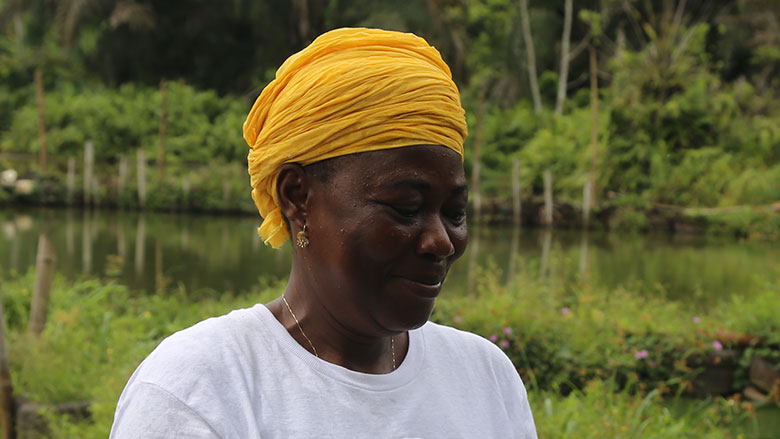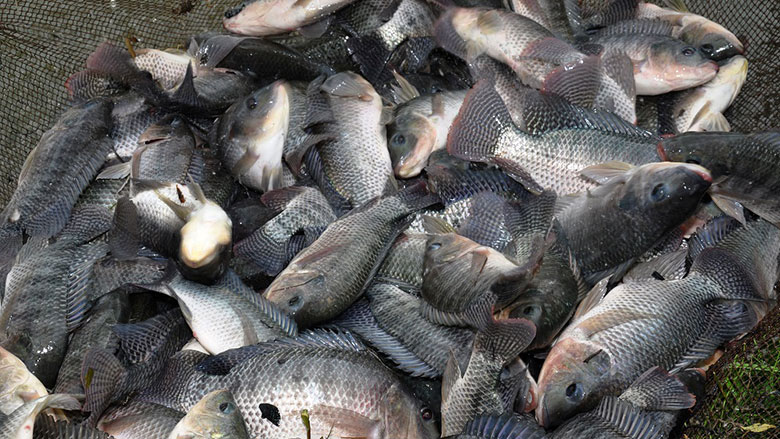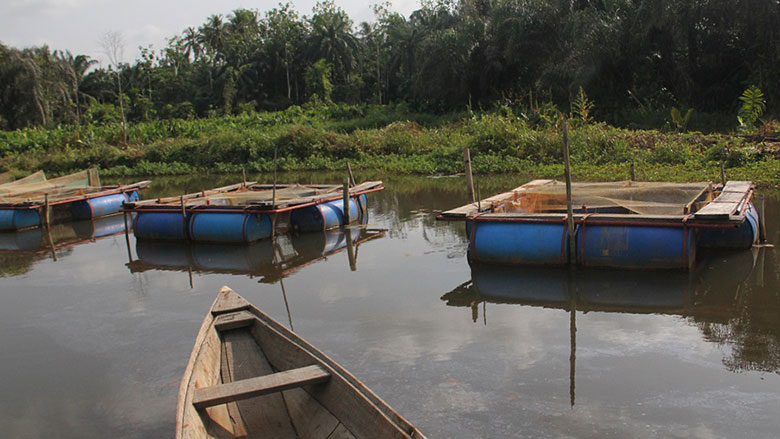ZINVIÉ, January 17, 2017 ─ Located some 40 kilometers from Cotonou, the Johan Estève agro-fisheries complex in Zinvié-Zoumé in the Abomey-Calavi commune is a multipurpose farm that is innovating agricultural and fish farming practices. Eugénie Faïzoun, the manager of the complex, is carrying out her farming activities with great enthusiasm on a long four-hectare field that slopes toward a mangrove. “Here I have 3,500 egg-laying hens, a few sheep and goats, rabbits, ducks, one hectare of plantains, and a small market garden area. I also have another field with three hectares of palm for oil and plots for seasonal crops,” she revealed proudly.
However, in Zinvié-Zoumé, Faïzoun is especially renowned for fish farming: 21 years in the business; an investment of over CFAF 75 million for the construction of eight 24 square meter ponds, two nine square meter ponds, and one 42 square meter pond, and the installation of a feed mill and a small hatchery!
Faïzoun used a cost-sharing subsidy amounting to CFAF 14.6 million (close to $24,000) from the World Bank-financed Agricultural Productivity and Diversification Project (PADA) to completely overhaul her farm over the past two years. “Support from PADA helped me construct five fish ponds for tilapia and catfish fingerling production, purchase a high-capacity generator, drill a borehole, and purchase genitors,” she noted. As a result, tilapia fingerling production has increased from 75,000 to 128,600, and catfish fingerling production from 50,000 to 75,000. Her sales have soared and Faïzoun has reinvested a huge portion of this money in boosting fish production.
With the help of another World Bank-financed project, the West Africa Agricultural Productivity Program (WAAPP), Eugénie was also able to obtain a better breeding stock to improve production quality and quantity.



